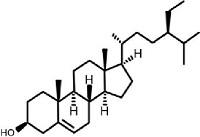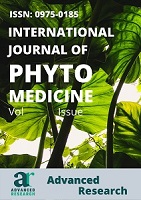A Critical review on Salvadora persica: An important medicinal plant of arid zone
Keywords:
Biological activity, Micropropagation, Miswak, Salvadora persicaAbstract
S. persica is a multipurpose tree with immense ethno-ecological importance and is commonly used for varied medicinal purposes. It is one of the identified plants from among the seventeen plants families that are cited in the Holy Quran. The plant is used as a source of food, fodder, lipids, gum and resins. In addition, it is also valued for rearing honey bees. Its roots are regularly used as tooth brush throughout the country. Besides these the plant is also grown to provide shelter-belts and windbreakes for agriculture crops. It is distributed throughout the arid and semi-arid ecosystem of world and helps in reclamation of sand dune habitats and saline soils in arid ecosystems. However, its population suffers from serious environmental problems such as deforestation, soil degradation, loss of biodiversity and unsustainable livelihoods. S. persica has high medicinal, economic and ecological values in arid and semiarid ecosystem. Nevertheless, its conservation status is highly threatened and detailed ecological study of S. persica is suggested to conserve its remaining population.
References
. Mabberley DJ. Mabberley's Plantbook, a portable dictionary of plants,
their classifications and uses. 3rd
Ed, University Press, Cambridge;
. Stewart RR. An Annotated Catalogue
of the Vascular plants of West
Pakistan and Kashmir, Fakhri
Printing Press, Karachi; 1972.
. Qureshi S. Salvadoraceae. In: Flora
of West Pakistan. (Eds): Nasir E, Ali
SI. ABC Book Corporation,
University of Karachi, Karachi. 1972;
: 1-4.
. Parveen A, Qaiser M. Pollen flora of
Pakistan-VI Salvadoraceae, Pak J
Bot 1996; 28: 151-154.
. Tahir SS, Rajput MT, Korejo F. A
new species of Salvadora
(Salvadoraceae) from Sindh,
Pakistan, Pak J Bot 2010; 42: 63-66.
. Sofrata A, Lingstrom P, Baljoon M,
Gustafsson A. The effect of miswak
extract on plaque pH: An in vivo
study, Caries Res 2007; 41(6): 451-
. Ezmirly ST, Cheng JC, Wilson SR.
Saudi Arabian Medicinal plants:
Salvadora persica, Planta Medica
; 35: 191-192.
. Almas K. The effect of Salvadora
persica (Miswak) and chlorahexidine
gluconate on Human Dentin: A SEM
Study, J Contemporary Dental
Practice 2002; 3(3): 27-35.
. Al-Otaibi M, Al-Harthy M, Soder B,
Gustafsson A, Angmar-Mansson B.
Comparative effect of chewing sticks
and toothbrushing on plaque
removal and gingival health, Oral
Health Prev Dent 2003; 1: 301-307.
. Al-Otaibi M, Al-Harthy M,
Gustafsson A, Johansson A,
Cleasson R, Angmar-Mansson B.
Subgingival Plaque microbiota in
Saudi Arabians after use of miswak
chewing stick and toothbrush, J Clin
Periodontol 2004; 31: 1048-1053.
. Bhandari MM. Flora of Indian desert,
MPS Reports, Jodhpur; 1995.
. Mathur S, Shekhawat GS, Batra A.
Micropropagation of Salvadora
persica via cotyledonary nodes,
Indian J Biotechnol 2002a; 1: 197-
. Almas K, AI-Lafi TR. The natural
toothbrush, Med Aromat Planl Ab
; 16(2): 206-210.
. Jindal SK, Bhansali R, Satyavir R.
Salvadora tree - A potential source
of non edible oil, In: Proc of All India
seminar on rabi oil seed crop
(Jodhpur, CAZRI); 1996
. Anonymous. The wealth of India -
Raw materials (New Delhi, CSIR),
; 9: 193-195.
. Malik S, Ahmed SS, Haider SI,
Muzaffer A. Salvadoricine - a new
indole alkaloid from the leaves of
Salvadora persica, Tetrahedron Lett
; 28: 163-164.
. Gururaja GR, Nayak
AK, Chinchmalatpure AR, Nath A,
Babu VP. Growth and Yield
of Salvadora persica, A facultative
halophyte grown on saline black soil
(Vertic Haplustept), Arid Land
Research and Management 2004;
(1): 165-168.
. Bhatia B, Sharma HL. Fuelwood
production and wasteland
reclamation, Botanica 2000; 14: 84-
. Darmani HT, Nusayr AM, ALHiyasat AS. Effects of extracts of
miswak and derum on proliferation
of Balb/C 3T3 fibroblasts and
viability of carcinogenic bacteria, Int
Dent Hygiene 2006; 4: 62-66
. Peshwae SR. Studies on tissue
cultures of Salvadora persica L.
M.Sc. thesis, Pune University,
Maharashtra; 1987.
. Booth FEM, Wickens GE. Nontimber uses of selected arid zone
trees and shrubs in Africa. FAO
Conservation Guide. No. 19. Rome.
Cholistan. Sociedade & Natureza
Uberlandia, 1988; 19: 55-64.
. Maggio A, Reddy MP, Joly RJ. Leaf
gas exchange and solute
accumulation in the halophyte
Salvadora persica grown at
moderate salinity, Environ Exp Bot
; 44: 31-38.
. Watson L, Dallwitz MJ. The families
of flowering plants: description,
illustrations, identification, and
information retrieval; 1992. p. 14.
. Panday BP. A text book of botany
angiosperm, Chand and company
Ltd. New Delhi, 2004.
. Hooker JD. Flora of British India.
(Vol: III) L. Reeve and Co. Ltd. UK,
. Jafri SM. Flora of Karachi. ABC
Book Corporation, Karachi; 1966.
. [Khan MA, Qaiser M. Halophytes of
Pakistan: characteristics, distribution
and potential economic usages. In:
Sabkha Ecosystems, West and
Central Asia. (Eds): Khan MA et al.
Springer, Netherlands, 2006; 42:
-153.
. Khafagi I, Zakaria A, Dewedar A, ElZahdany K. A voyage in the world of
plants as mentioned in the Holy
Quran, Inter J Bot 2006; 2: 242-251.
. [29] Iyenger ERR, Patolia JS,
Chikara J. A useful plant for coastal
saline soils, Wastelands News 1992;
: 50-51.
. Zodape ST, Indusekhar VK.
Salvadora persica: A boon to
wasteland development, J Scient
Indust Res 1997; 56: 657-661.
. [31] Al-Samh DA, Al-Nazhan S. In
vitro study of the cytotoxicity of the
miswak ethanolic extract, Saudi
Dental Journal 1997; 9: 125-30.
. Hassan S, Al-Yemeni MN, Yahya
SM, Shah AH. Ethnomedicinal and
ethnoecological evaluation of
Salvadora persica L.: A threatened
medicinal plant in Arabian
Peninsula, J Med Plant Res 2010;
(12): 1209-1215.
. Abdillahi HS, Stafford GI, Finnie JF,
Staden JV. Ethnobotany,
phytochemistry and pharmacology
of Podocarpus sensus, South Afr J
Bot 2010; 76 (1): 1-24.
. Garboui SS, Borg-Karlson AK,
Palsson K. Tick repellent properties
of three Libyan plants, J Med
Entomol 2009; 46(6): 1415-1419.
. Kamil M, Jayaraj AF, Ahmed F,
Gunasekhar C, Samuel S,
Habibullah M, Chan K.
Pharmacognostic and
phytochemical studies on Salvadora
persica, J Pharm Pharmacol 1999;
: 51-58.
. Al-Quran S. Taxonomical and
pharmacological survey of
therapeutic plants in Jordan, J Nat
Prod 2008; 1: 10-26.
. Jain M, Saxena VK. Chemical
constituents of the stem of
Salvadora persica, Acta Ciencia
Indica 1984; 10: 127.
. Almas K. The antimicrobial effects of
extracts of Azadirachta indica
(Neem) and Salvadora persica
(Arak) chewing sticks. Indian J Dent
Res 1999; 10: 23-26.
. Almas K. The antimicrobial effects of
seven different types of Asian
chewing sticks, Odontostomatol
Trop 2001; 24: 17-20.
. Al-Otaibi M. The miswak (chewing
stick) and oral health - Studies on
oral hygiene practices of urban
Saudi Arabians, Swed Dent J Suppl
; 167: 2-75.
. Ezmirly ST, El-Nasr MS. Isolation of
gluco- tropaeolin from Salvadora
persica, J Chem Soc Pak 1981; 3:
-12.
. Khalil AT. Benzylamides from
Salvadora persica, Arch Pharm Res
; 29: 952-956.
. Khatak M, Khatak S, Siddqui AA,
Vasudeva N, Aggarwal A, Aggarwal
P. Salvadora persica, Phcog Rev
; 4: 209-214.
. Korejo F, Ali SA, Syeda S, Tahir MT,
Rajput M, Akhter MT. Comparative
morphology and biochemical studies
of Salvadora species found in Sindh,
Pakistan, Pak J Bot 2010; 42(1):
-1463.
. Mathur S, Shekhawat GS, Batra A.
An efficient in vitro method for mass
propagation of Salvadora persica via
apical meristem, J Plant Biochem
Biotechnol 2002; 11: 125-127.
. Mathur S, Shekhawat GS, Batra. A
Somatic embryogenesis from
cotyledon explants of Salvodora
persica, Phytomorphol 2008; 58(1-
: 57-63.
. Haberlandt G. Culturversuche mit
isolierten, Pflanzenzellen
Sitzungsber Akad Wiss Wien Math
Nat Cl III Abt 1; 1902. p. 69-91.
. Nehra NS, Kartha KK. Meristem and
shoot tip culture: requirement and
application. In: Vasil IK, Thorpe TA
(Eds) Plant Cell Tissue Organ Cult,
Kluwer, Dordrecht; 1994. p. 37-70.
. Rao PS, Suprasanna P, Ganapathi
TR. Plant Biotechnology and
agriculture prospects for
improvement and increasing plant
productivity, Sci Cult 1996; 62: 185-
. Bajaj YPS. Biotechnology of tree
improvement for rapid propagation
and biomass energy production. In:
Bajaj YPS (Ed) Biotechnology in
Agriculture and Forestry, vol 1.
Springer-Verlag, Berlin, New York;
p. 1-23.
. Karp A. Origin, causes and uses of
variation in plant tissue cultures. In:
Vasil IK, Thorpe TA (Eds) Plant cell
and tissue culture, Kluwer,
Dordrecht; 1994. p. 139-150.
. Roja G, Rao PS. Biotechnological
investigation in medicinal plants for
the production of secondary
metabolites. In: Khan I, Khanum A
(Eds) Role of Biotechnology in
medicinal and aromatic plants,
Ukaaj Publ, Hyderabad, India; 1998.
p. 95-125.
. Litz RE, Gray DJ. Organogenesis
and somatic embryogenesis. In:
Hammerschlag FA, Litz RE (Eds)
Biotechnology of perennial fruit
crops. CAB International,
Wallingford; 1992. p. 3-34.
. Rai MK, Asthana P, Jaiswal VS,
Jaiswal U. Biotechnological
advances in guava (Psidium
guajava L.): recent development and
prospects for future research, Trees
; 24: 1-12.
. Christianson ML. Causal events in
morphogenesis. In: Green CE,
Somers DA, Hackett WP, Biesboer
DD (Eds) Plant tissue and cell
culture. A.R. Liss., New York; 1987.
p. 44-55.
. Phulwaria M, Kheta Ram, Gahlot P,
Shekhawat NS. Micropropagation of
Salvadora persica-a tree of arid
horticulture and forestry, New
Forests 2011; DOI 10.1007/s11056-
-9254-z.
. Bein E. Useful trees and shrubs in
Eritrea, Regional Soil Conservation
Unit (RSCU), Nairobi, Kenya, 1996.
. Noumi E, Snoussi M, Hajlaoui H,
Valentia E, Bakhrouf A. Antifungal
properties of Salvadora persica and
Juglans regia L. extracts against
oral Candida strains, Eur J Clin
Microbiol Infect Dis 2010; 29 81-88.
. Monforte MT, Travoto A, Rossito A,
Foresteieri AM, Aquino DA, Galati
EM. Anticonvulsant and sedative
effects of Salvadora persica L. stem
extract, Phytother Res 2002; 16(14):
-397.
. Ahmad HA, Ghazanfar SA.
Conservation of medicinal plants on
the Arabian Peninsula, Two case
studies, Med Plant Conservation
IUCN 1991; 3: 15-16.
. Ghazanfar SA. Saline and alkaline
vegetation of NE Africa and the
Arabian Peninsula: An overview. In:
Biosaline agriculture and salinity
tolerance in plants. Eds. Ozturk M,
Waisel Y, Khan MJ, Gork G,
Springer V. Published by Birkhauser
Basel; 2007. p. 108-109.
. Abuzinada AH, Al-Wetaid YI, AlBasyouni SZM. The national
strategy for conservation of
biodiversity in the kingdom of Saudi
Arabia, Prepared and issued by:
The National Commission for
Wildlife Conservation and
Development. Conservation of
Biological Diversity, Riyadh, Saudi
Arabia, 2005.
. Sher H, Khan ZD, Khan AU,
Hussain F. Ethnobotanical study on
some plants species in village
Tigdari, District Swat, Yunnanica, J
Acta Bot 2004; 25: 42-54.
. Al-Yemeni MN. Ecological studies
on San dunes vegetation in Al-Kharj
region, Saudi Arabia. Saudi J Bio
Sci 2000; 7(1): 64-87.
. Hines DA, Eckman K. Indigenous
multipurpose trees for Tanzania:
uses and economic benefits to the
people. Cultural survival Canada
and Development Services
Foundation of Tanzania, 1993.
. Alfaran AH, Al-Faraj MM, Hajar AS.
Wild edible plants in Saudi Arabia,
Arab Gulf J Scient Res 1992; 10(1):
-108.
. Mahar AQ, Malik AR. A study on the
medicinal plants of Kotdiji, District
Khairpur Sindh, Pakistan Scient,
Sindh J Res 2001; 8: 31-38.
. Savithramma N, Sulochana CH,
Rao KN. Ethnobotanical survey of
plants used to treat asthma in
Andhra Pradesh, India J
Ethnopharmacol 2007; 113: 54-61.
. Sanogo R, Monforte MT, Daquino A,
Rossitto A, Maur DD, Galati EM.
Antiulcer activity of Salvadora
persica L.: structural modifications,
Phytomedicine 1999; 6(5): 363-366.
. Al-Mohaya MA, Darwazeh A, AlKhudair W. Oral fungal colonization
and oral candidiasis in renal
transplant patients: The relationship
to Miswak use. Oral Surg Oral Med
Oral Pathol Oral Radiol Endod 2002;
: 455-460.
. Hamza OJ, Bout-van CJ, Matee MI,
Moshi MJ, Mikx FH, Selemani HO,
Mbwambo ZH, Vander AJ, Verweij
PE. Antifungal activity of some
Tanzanian plants used traditionally
for the treatment of fungal infections,
J Ethnopharmacol 2006; 108: 124-
. Ali H, Konig GM, Khalid SA, Wright
AD, Kaminsky R. Evaluation of
selected Sudanese medicinal plants
for their in vitro activity against
hemoflagellates, selected bacteria,
HIV-1-RT and tyrosine kinase
inhibitory, and for cytotoxicity, J
Ethnopharmacol 2002; 83(3): 219-
. Sofrata AH, Claesson RL, Lingstram
PK, Gustafsson AK. Strong
antibacterial effect of miswak
against oral microorganisms
associated with periodontitis and
caries, J Periodontol 2008; 79:
-1479.
. Almas K, Al-Zeid Z. The immediate
antimicrobial effect of a toothbrush
and miswak on cariogenic bacteria:
a clinical study, J Contemp Dent
Pract 2004; 5: 105-114.
. Almas K. Miswak (chewing stick)
and its oral health, Postgrad Dentist
; 3: 214.
. Duhan A, Chauhan B, Punia D.
Nutritional value of some nonconventional plant foods of India.
Plant Foods Human Nutrition 1992;
: 193-200.
. Al-Otaibi M, Angmar B. Oral hygiene
habits and oral health awareness
among urban Saudi Arabians. Oral
Health Prev Dent, J Scient Indust
Res 2004; 56: 657-661.
. Khan AU. Monitoring structural
assets of bi-species groves
according to land use types: a case
study from arid plains. Environ Monit
Assess 2009; DOI 10.1007/s10661-
-1096-1.
. Darmani H, Al-Hiyasat AS,
E1betieha AM, Alkofahi A. The
effect of an extract of Salvadora
persica (Meswak chewing stick) on
fertility of male and female mice,
PhytoMedicine 2003; 10: 63-65.
. Edi MA, Selim HA. Retrospecitve
study on the relationship between
Miswak chewing stick and
periodontal health, Egyptian Dent J
; 40: 589-592.
. Mansour Ml, Al-Khateeb TL, Al -
Mazraoo AA. The analgesic effect of
Miswak, SDJ 1996; 8: 87-91.
. Almas K, Al -Bagieh N, Akpata ES.
In vitro antibacterial effect of freshly
cut-month-old Miswak extracts,
Biomed Lett 1997; 56: 145-149.
. Al-Bagieh N, Almas K. In-vitro
antibacterial effects of aqueous and
alcohol extracts of Miswak (chewing
sticks), Cairo Dent J 1997; 13: 221-
. Mohammad A, Turner JE. In vitro
evaluation of Saudi Arabian
toothbrush tree (Salvadora persica),
Odontostomatol Trop 1983; 3: 145-
. Baeshen HA, Kjellberg H, Lingstr
AP, Birkhed D. Uptake and release
of fluoride from Fluorideimpregnated chewing sticks in vitro
and in vivo, Caries Res 2008; 42:
-368.
. Kubota K, Tanaka T, Murata Y,
Hirasawa M. Effect of tannic acid on
adherence of Candida to denture
base, J Dent Res 1988; 67: 183.
. Norton MR, Addy M. Chewing sticks
versus tooth brushes in West Africa,
Clin Preventive Dent 1989; 11: 11-
. Abo Al-Samh D, Al-Bagieh N. A
study of antibacterial activity of the
miswak extract in vitro, Biomed Lett
; 53: 225-238.
. Galati EM, Monforte MT, Forestieri
AM, Miceli N, Bader A, Trovato A.
Salvadora persica hypolipidemic
activity on experimental
hypercholesterolemia in rat,
Phytomed 1999; 6: 181-185.
. Gazi Ml, Davies TJ, Al-Bagieh N,
Cox SW. The immediate and
medium- term effects of Meswak on
the composition of mixed saliva, J
Clin Perio-dontol 1992; 19: 113-117.
. Darout IA, Albandar JM, Skaug N.
Periodontal status of adult
Sudanese habitual users of miswak
chewing sticks or toothbrushes, Acta
Odontol Scand 2000; 58: 25-30.
. Almas K. The effects of extracts of
chewing sticks (Salvadora persica)
on healthy and periodontally
involved human dentine: a SEM
study, Indian J Dent Res 2001; 12:
-17.
. Batra A, Mathur S, Shekhawat GS,
Paliwal A. Salvadora persica - A
rare drug plant of arid zone, In Role
of biotechnology in medicinal and
aromatic plants, Eds Khan IA,
Khanum A (Hyderabad, Ukaaz
Publication) 2001; 4: 81-86.



